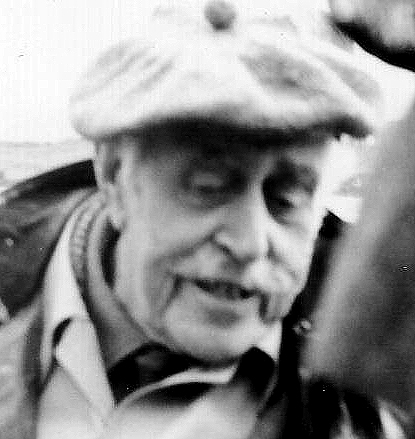
We conclude the very interesting article ‘Pipers of Scotland’ from the pen of the London Times piping correspondent Seton Gordon. It dates from the 1960s. In this excerpt he discusses the hereditary pipers to the MacDougalls and MacKenzies, gives composers for two famous piobaireachd and poses the age old question: do pipers today play as the masters of the past did?
The MacDougalls were originally hereditary pipers to the MacDougall chiefs at their castle of Dunollie, near Oban. They had a croft at Moleigh and a piping college at Kilbride. Tigh nam Piobairean, the Pipers’ House, was not far from Dunach.
Alasdair Mór is the first of the family whose date is known with accuracy. His time was 1635-1709. His son, Ranald Ban, composed the well-known piobaireachd, The King’s Taxes. It is said that he was the last to officiate at the Kilbride College of Piping.
Ranald Mor MacDougall continued the line of hereditary pipers. He composed the Lament for Captain MacDougall, the chief’s eldest son, who was killed fighting in the 72nd Regiment under Wellington at Ciudad Rodrigo in 1812. An old tree of rare beauty growing in the grounds of Dunollie commemorates the captain.
A well-known MacDougall piper was Ailean Dall, Blind Allan. Born In Glencoe five years after Culloden, he was a travelling tailor, carrying on his trade in the crofts of the poor and the houses of the well-to-do. In his pack he carried a wooden candlestick for three lights.
It is written in the chief’s family papers that one of Blind Allan’s tunes, composed in his old age, was the beautiful Cronan na Cailliche, the Old Woman’s Lullaby. Angus Mackay, in his rare and classic book of piobaireachd tunes, published more than a century ago, mentions ‘Blind MacDougall’ to whom he was indebted for the names and settings of a number of tunes.
I have so far said nothing of the Mackays, hereditary pipers to the MacKenzies of Gairloch, yet this family was among the most eminent among pipers of the Scottish mainland. The ancestry of these pipers is not, I think, definitely known, but neither, for that matter, is the origin of the MacCrimmons.
Ruaridh Dall (Blind Roderick) was considered to be excelled as a piper only by the MacCrimmons. His son, Eain Dall Mackay, was, so Angus Mackay says in his book on piobaireachd, also sightless, and was known as Am Piobair Dall, the Blind Piper. It is possible the piobaireachd, The Blind Piper’s Obstinacy may have associations with him.
Eain Dall received his finishing touches from Padruig Og MacCrimmon at the MacCrimmon piping college on Loch Dunvegan in the isle of Skye. He was a composer of ceòl mór, the great music, and himself composed at least 30 piobaireachd; he was also a good Gaelic poet.
His outstanding composition in pipe music is the Lament for Padruig Og MacCrimmon, one of our few immortal pipe tunes, composed when he heard that his beloved teacher had died. Fortunately, the rumour lied. Eain Dall later crossed the sea to Skye and had the strange experience of playing his great tune to a living man. MacCrimmon is said to have been so impressed by the merits of the tune that he at once said that he would learn and play it.
Eain Dall was born in 1666 and lived to the great age of 98 years. The last of the Mackay pipers left the services of the MacKenzies of Gairloch (the site and ruins of their croft are still to be seen above Loch Maree) and emigrated to America about the year 1800.
Did the MacCrimmons, the Mackays and the MacArthurs play as the great pipers of the present day play? This may always be a controversial point; yet these great tunes of the classical pipe music repertoire have been handed down most carefully from one generation to the next, and it would be surprising if there were any great differences in the playing, let us say, of that master piper, the late John MacDonald of Inverness and the MacCrimmons. John MacDonald has left behind him a few precious recordings; the MacCrimmons have left us their masterpieces, but, alas, no sound record of the way in which they played them.